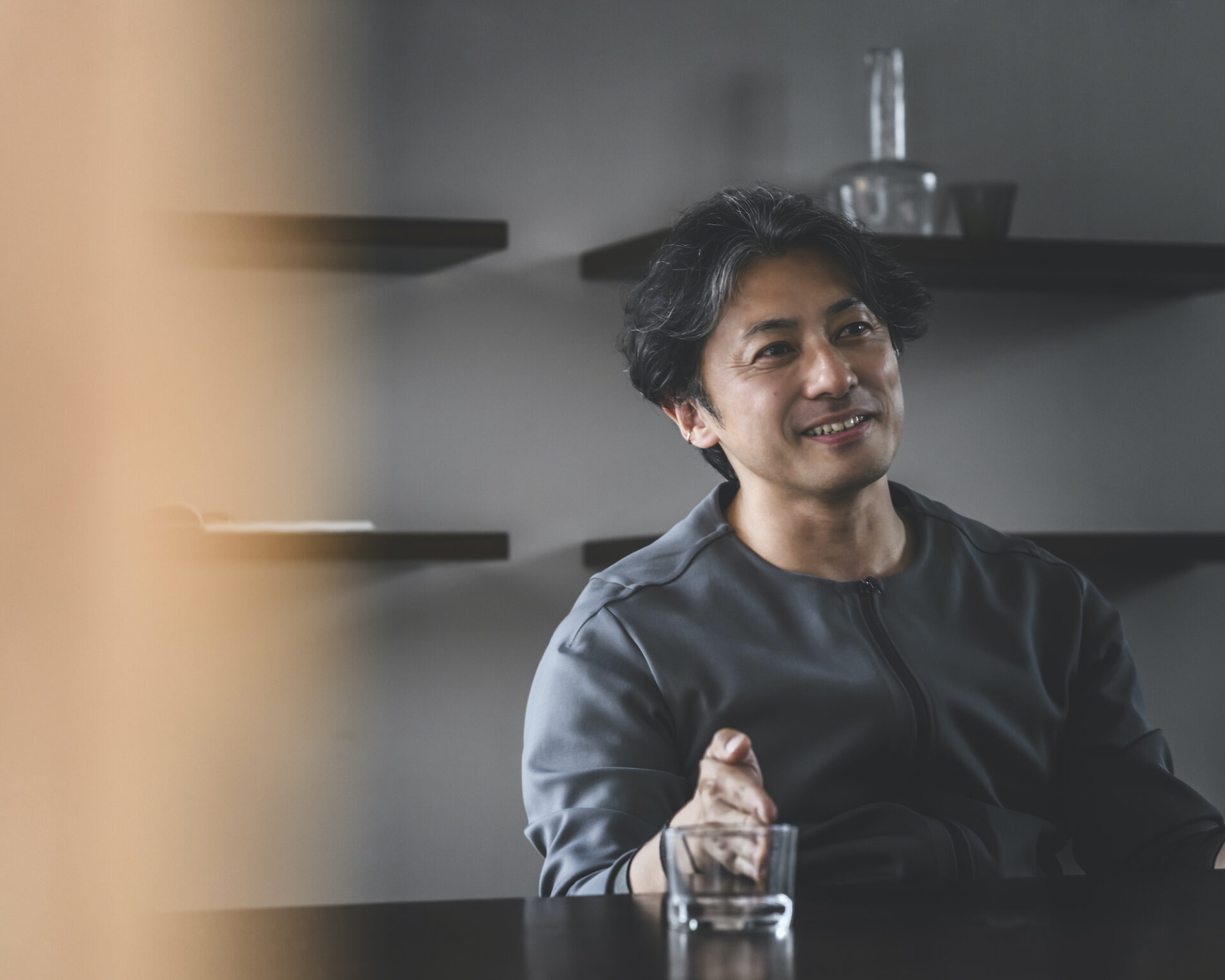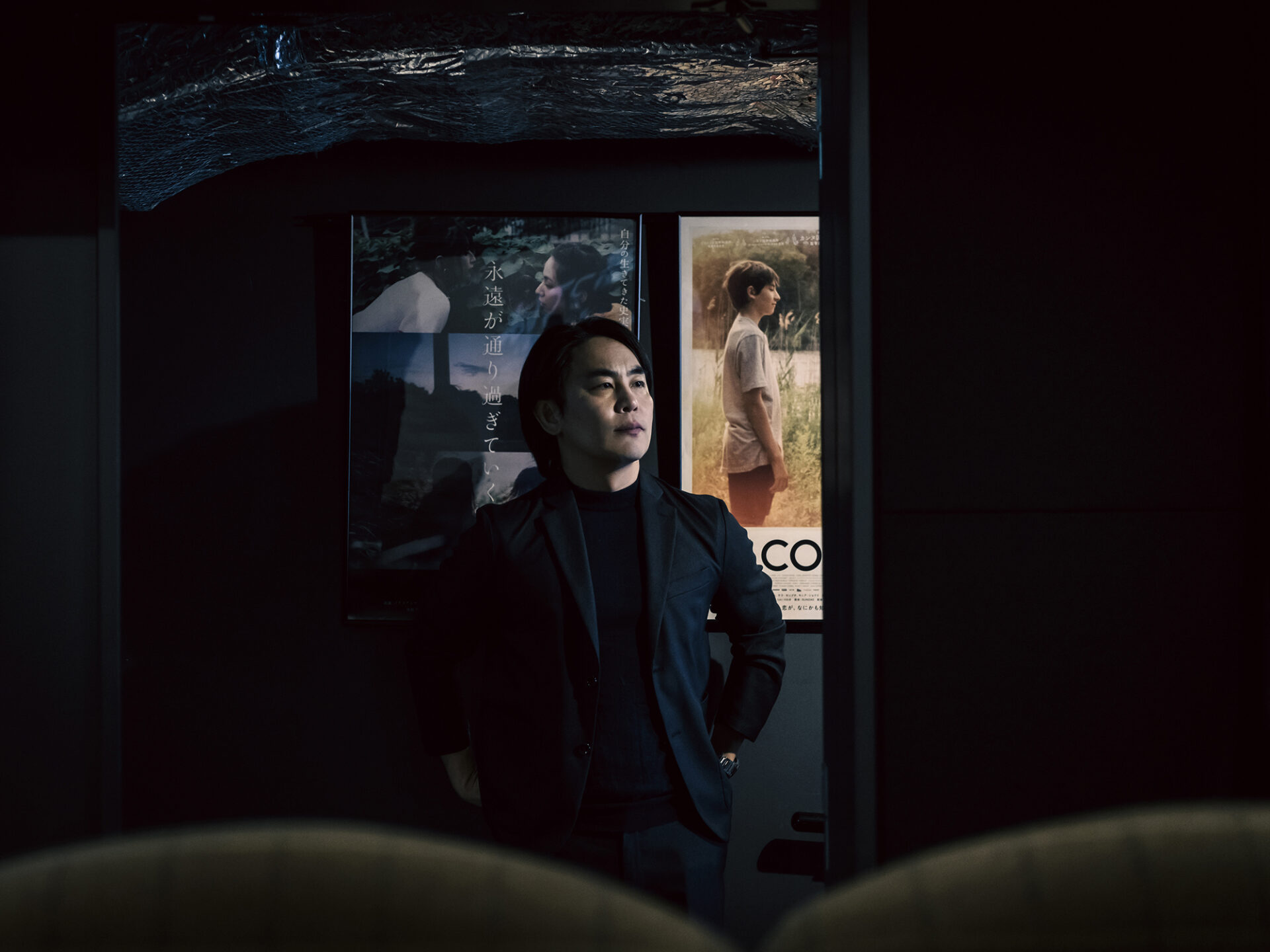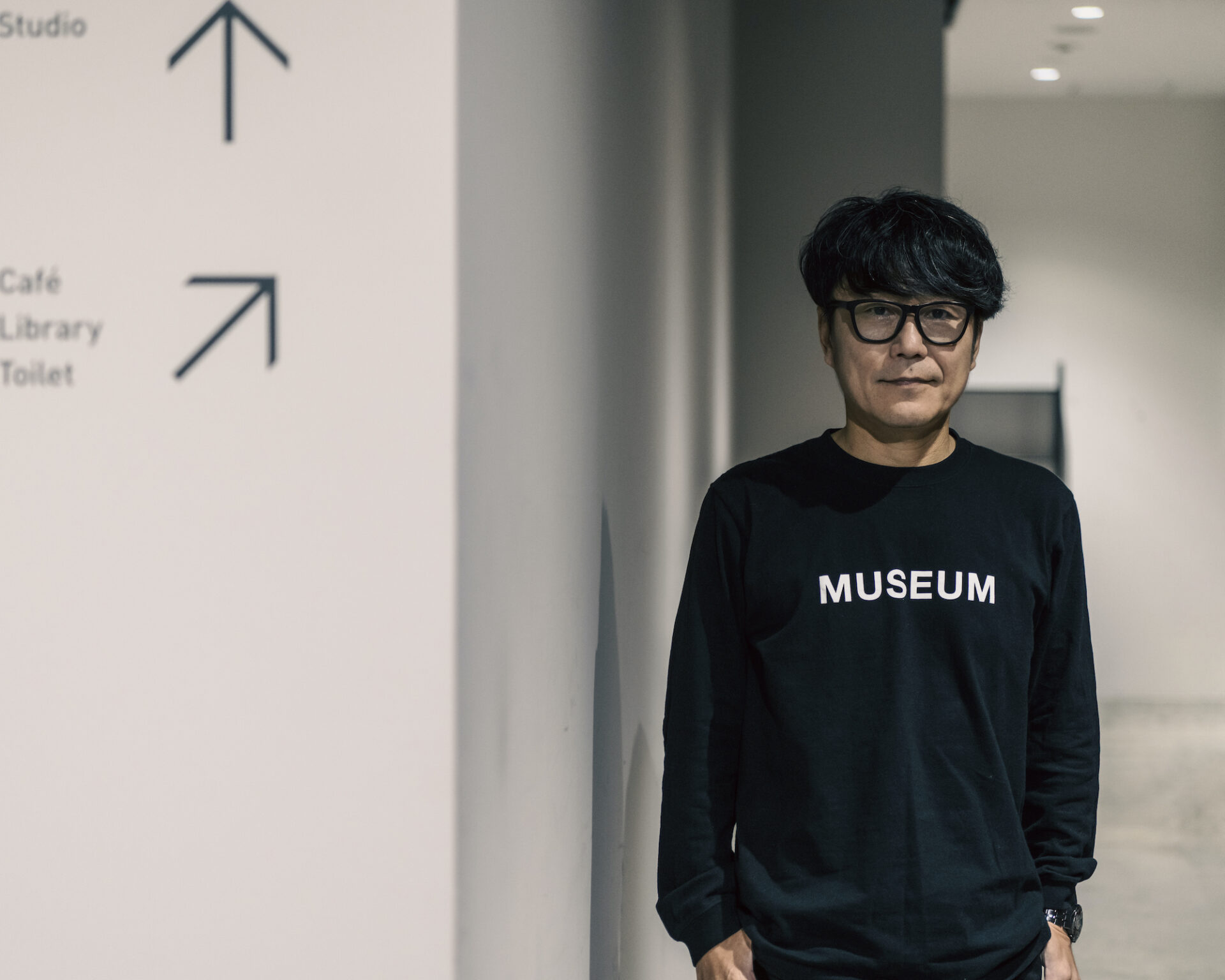
2025-06-26
Vol.18
Freelancer (Business Consultant)
Tsuguhide Nagase(part 1)
-
To Endure for 100 Years
-
Carrying the Spirit Forward
-
Mother's Cooking Is the Strongest Brand
-
Enhancing the Quality of Choice
There once was a man known as “The God of Management.” His name was Konosuke Matsushita, the founder of Matsushita Electric Industrial Co., which he established 100 years ago — a company that would later become Panasonic Holdings. One of the messages he left behind before his passing was: “A sound management philosophy is fundamentally timeless.” By “sound management,” he meant an approach that brings happiness to people. In today’s world, where digital technology has permeated every aspect of daily life, some say that “excessive dependence on digitalization makes people unhappy.” In this context, is it possible to carry forward the message that Mr. Matsushita instilled in his philosophy of management? Tsuguhide Nagase is an exceptionally accomplished marketing professional who has held key positions at globally recognized companies and brands such as Instagram, Lipton, and L’Oréal — including serving as the head of operations in Japan. Welcoming him as our guest today, we explored insights into building an authentic brand that can endure for 100 years and discussed the essence of marketing.
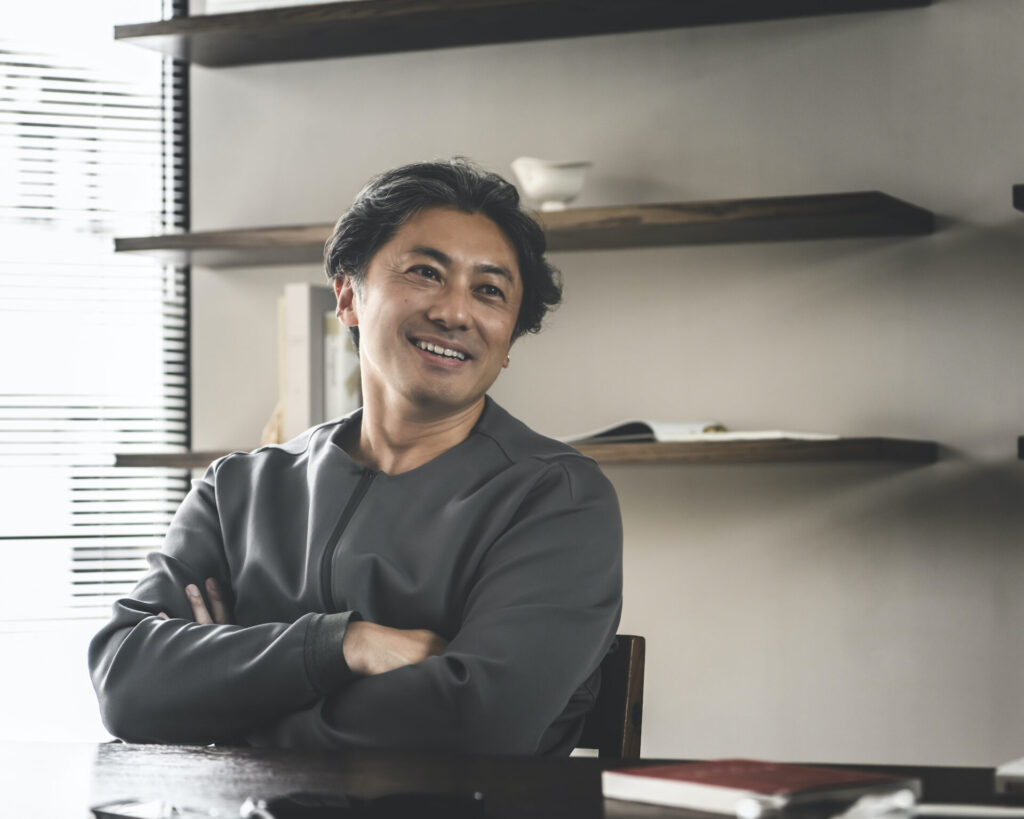
“Essentially, a brand’s survival depends on whether someone actually needs it.” (Nagase)
——I heard that this is the second time you two have met.
Masakazu Shigeta: Yes, that’s right. I’m involved in a project in Minakami, Gunma, to renovate a disused school into a lodging facility. I’ve been working with an architect, Mr. Kotaro Anzai from ADX, who had often mentioned someone he wanted to introduce me to. That person turned out to be Mr. Nagase, and we finally met two months ago.
Tsuguhide Nagase: Yes, that’s right.
Shigeta: We had dinner together at a Peruvian restaurant in Aoyama, and his words during the meal left a lasting impression on me. My interest in him didn’t fade even after the dinner, so I ordered his books and read them one after another. I started with Marketing Big Bang, then moved on to Words for You Today. I felt the second one, which contains 108 poetic messages, offers a deeper reflection of Mr. Nagase’s personality.
——What kind of conversation do you want to have with him today?
Shigeta: When I first met him, I sensed a genuine authenticity in his approach to marketing. In 2023, our brand, OSAJI, formed a capital alliance with Marubeni. We included a clause in the agreement saying, “We aim to create an authentic brand that will last 100 years.” We didn’t think too deeply about what it meant when we made the contract. But then we began asking ourselves questions like, “What kinds of companies actually last for 100 years?” or “How can we keep it going for that long?” While we can look to older companies as benchmarks, they’re not always helpful because the historical context is very different. To be honest, I don’t think companies and services launched in recent years will survive for 100 years. It is essential to seriously focus on manufacturing, but marketing policy is more crucial in building brands that endure. That’s why I hope to gain some insight from Mr. Nagase today.

——So, today’s theme is “how to build a brand that lasts for 100 years,” right?
Shigeta: Yes, I believe so.
——Actually, Japan is a country well known for its long-lasting companies. In fact, half of the world’s century-old companies are Japanese.
Nagase: To be honest, I didn’t know that at all. Maybe it’s because these century-old Japanese brands have surprisingly low brand recognition in the market. Essentially, a brand’s survival depends on whether someone actually needs it. Unilever and L’Oréal, where I once worked, own many century-old brands. From my personal experience working there, the key to long-lasting popularity and presence is maintaining strong relationships with customers. These brands are naturally woven into the fabric of daily life and accepted as part of the culture. These are the kinds of items you’d find in almost every household. Lipton tea is a good example. They utilize natural resources from the earth, process them into a beverage, and make them indispensable to everyday life. They invested significant time in adapting to new environments and cultures, as well as in building relationships with customers so that people genuinely came to love the brand.
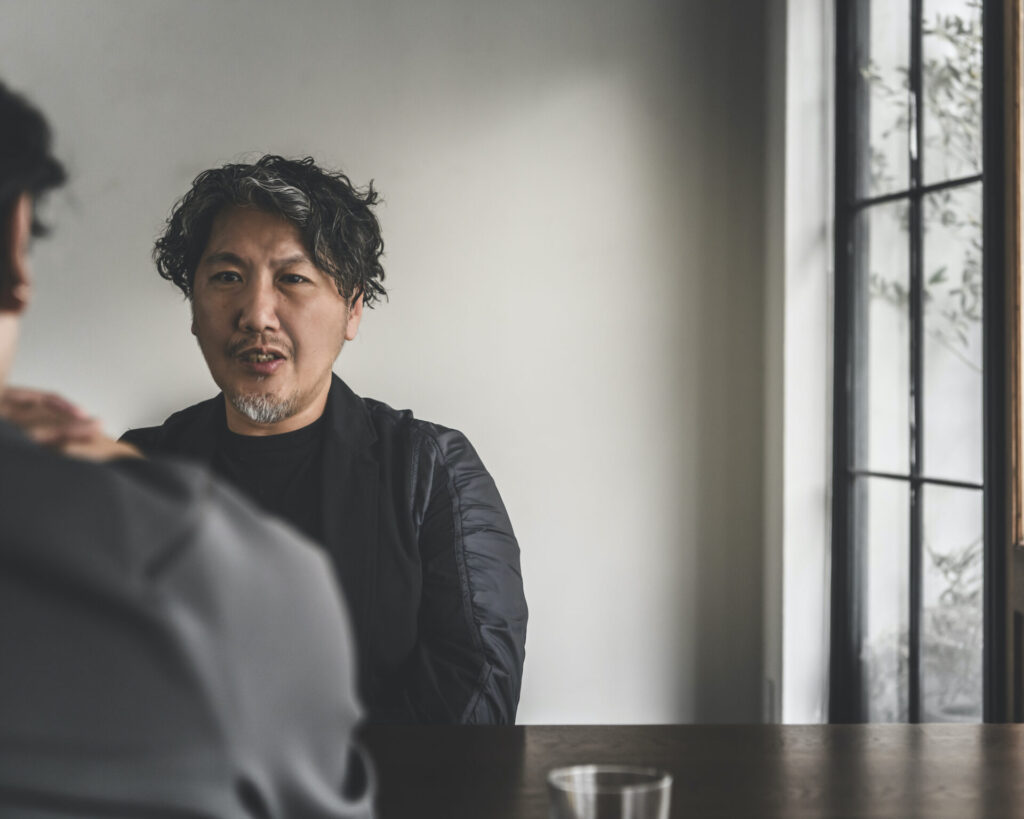
“What matters to build a universal relationship is not a method” (Shigeta)
——Mr. Shigeta, why are you so focused on “100 years?”
Shigeta: Whether or not the brand lasts 100 years is merely the outcome. What I truly want is to create and deliver something universal that can endure for 100 years. These days, methods such as community marketing and fan marketing are drawing attention to how they help build relationships with customers. But to me, the method itself isn’t what matters. What matters most is having the motivation to create universal products, and the method is just a means to achieve that end. That’s how it should be. I feel a sense of urgency because people today are too focused on the methods.
Nagase: For example, the relationship between long-time friends is often nurtured without thinking about profit or loss. Yet today, people tend to overlook such essential things. Truly universal relationships—whether between married couples or parents and children—are built only through overcoming various experiences and hardships. The same can be said of the relationship between a brand and its customers.

——Is there anything you consciously do to build universal relationships with your customers?
Shigeta: What I find most difficult right now is how to share the pure feelings and intentions I had when I started the business with the current team members and convey them to our customers. I originally started making cosmetics for my mother. Now, I create them for people across the ocean, but my motivation remains unchanged from when I was making them for someone close to me. As a company grows, however, the speed at which the organization expands by sharing passion doesn’t always align with the pace that society demands. Our company was no exception. There was a period when the company grew so rapidly that we couldn’t fully pass on that passion. While the core members understand the founder’s passion, newer members haven’t experienced it firsthand. Naturally, a gap begins to form. That is why, when we think about how to convey the vision to team members, we often confuse the essence—the founder’s original feelings—with the method, leading people to focus more on the method than on the message itself.
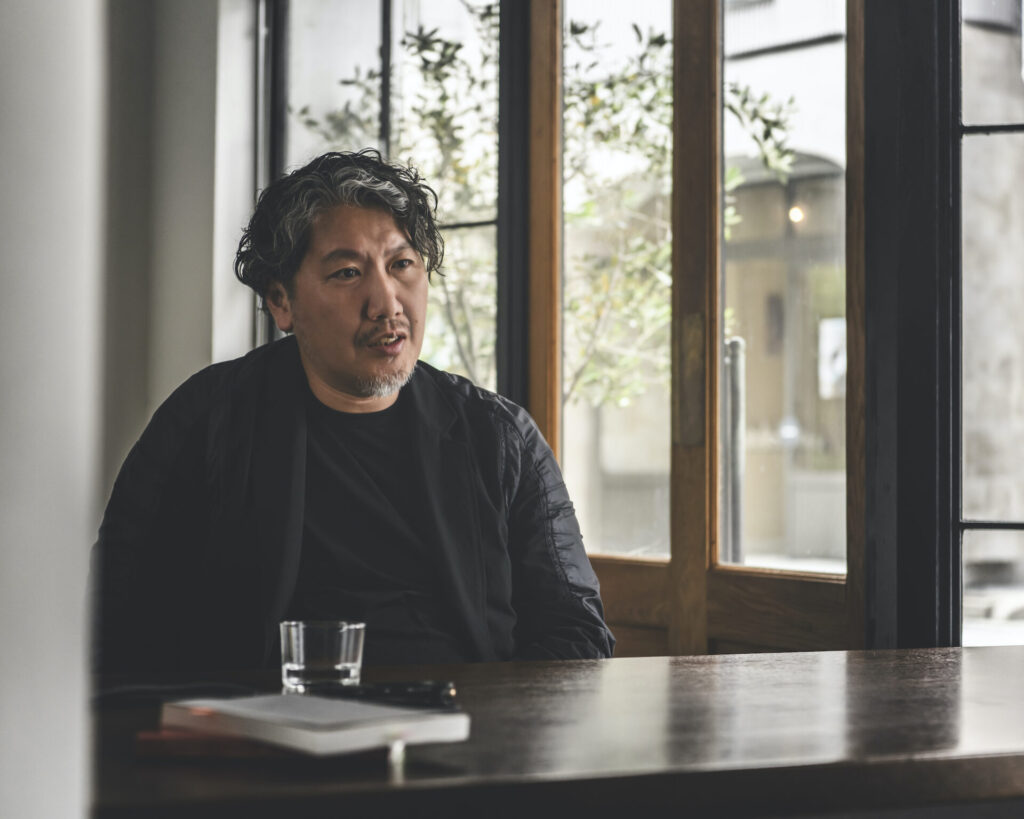
——Speaking of how you pass on the founder’s spirit to future generations, I think the example of Lipton you mentioned in your book can be a good reference point.
Nagase: Founders are often the most passionate and influential people in a company. The best way to understand their spirit is to see the world through their eyes and share their worldview. At Lipton, when you’re promoted to manager, you’re asked how you can approach business with the same passion as the founder. There are things you can’t fully understand just by reading books or documents, but if you believe you can gain that understanding by seeing the world and landscapes Lord Lipton once saw, you’re encouraged to go there. I visited tea plantations in Sri Lanka and took in the local scenery sitting on the “Lipton’s Seat,” the very place Lord Lipton once used. By doing so, you naturally begin to think the way he did. You become immersed in the worldview of Lord Lipton and come to realize that the essence of the business is delivering delicious tea to as many people as possible. This is how Lipton passes down the founder’s spirit. That’s more like building a friendship than developing skills. If it’s a friend’s wish, even after they’ve passed away, you’d still want to make that dream come true. Doing business with that kind of motivation is a beautiful thing, and it’s exactly what a brand with a 100-year history values the most.
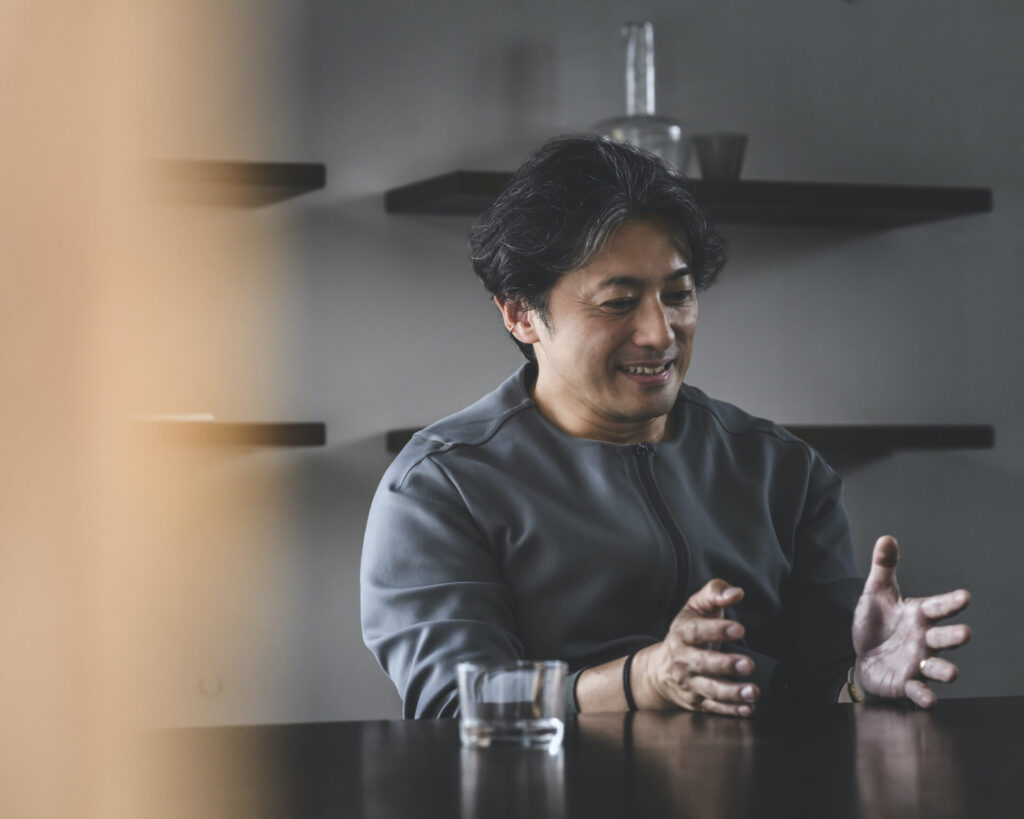
“The reason I believe mother’s cooking is the strongest brand is because the relationship lives on through the experience of taste.” (Nagase)
Nagase: I believe there are two types of companies and brands that stand the test of time. One is where the founder’s spirit and values are well inherited. The other is where customers deeply understand and love the brand and continue to support it even after the founder is gone. Companies and brands can only survive if their philosophy is understood and appreciated. So, the key to longevity lies in what you leave behind, ensuring that it continues to be recognized and valued.
If many customers view a company and its brand as part of their lives, there’s a strong chance the company can be revived even after bankruptcy. It is like trying to recreate your mother’s cooking, and what you rely on is memory, not a recipe. Remembering the taste, you experiment through trial and error, trying to recreate that familiar flavor. I believe mother’s cooking is the strongest kind of brand because the relationship lives on through the experience of taste.
——Mr. Shigeta earlier pointed out that fewer companies and brands pursue the essence of things these days. Would you agree with that view?
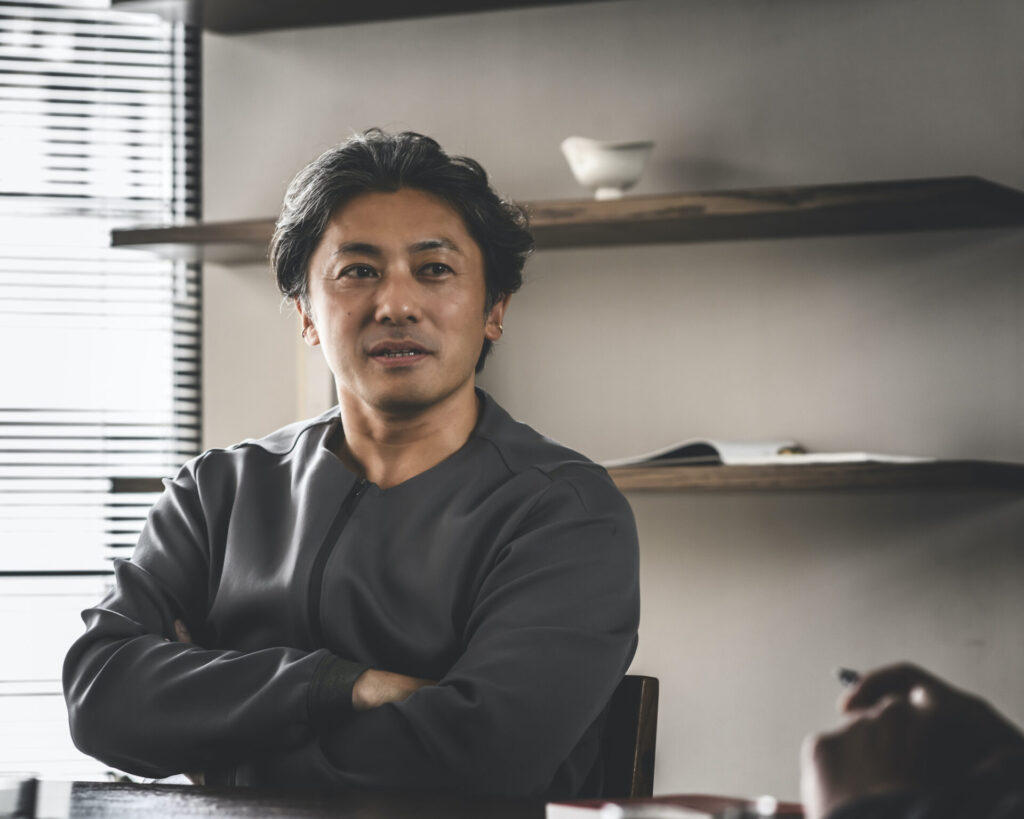
Nagase: Yes, I agree. There are several reasons for this, including the growing focus on pursuing short-term profits. However, the root of the problem lies in the weakening of relationships. If you pay less attention to what’s essential, the bond between customers and brands inevitably begins to weaken. Speaking of our relationship with things, the advent of fast fashion has made it common to replace items as soon as they show signs of wear and tear. Pricing also reinforces the behavior.
——Some say that social media also accelerates the weakening of these relationships.
Nagase: It might sound strange coming from someone who helped build Instagram in Japan, but I believe social media have a profound influence. A clear example is the growing trend of people seeking relationships that minimize emotional risk or avoid face-to-face interaction altogether. When they have something that they can easily solve by meeting face-to-face, they try to handle it with the tools they have at hand. The reason I accepted Mr. Shigeta’s offer is that I was genuinely interested in him when we first met and wanted to meet him again. That kind of feeling simply doesn’t arise from social media interactions. Whether it’s cosmetics or shampoo, you will never know if it suits you, no matter how highly influencers praise a product. There are many things out there that you can’t truly understand until you experience them firsthand.
Shigeta: One of the peak experiences that human beings instinctively seek is the “Zone.” It’s a “proto-scientific” phenomenon―not yet fully understood by science―but athletes genuinely believe in this ultimate state of concentration, where they feel as if time has stopped. I believe a similar state of “zone” can exist within human relationships. Such moments accumulate as unforgettable experiences that help to shape our worldview. Then, how can we build such meaningful relationships between people? Essentially, I believe the key lies in repeated acts of inviting and connecting. Take today’s dialogue, for example. We were able to share this time together because I invited Mr. Nagase, and, as a preliminary step, Mr. Anzai from ADX made the connection. I’m afraid many people mistake this kind of inviting and connecting for something similar to simply following or sending friend requests on social media.
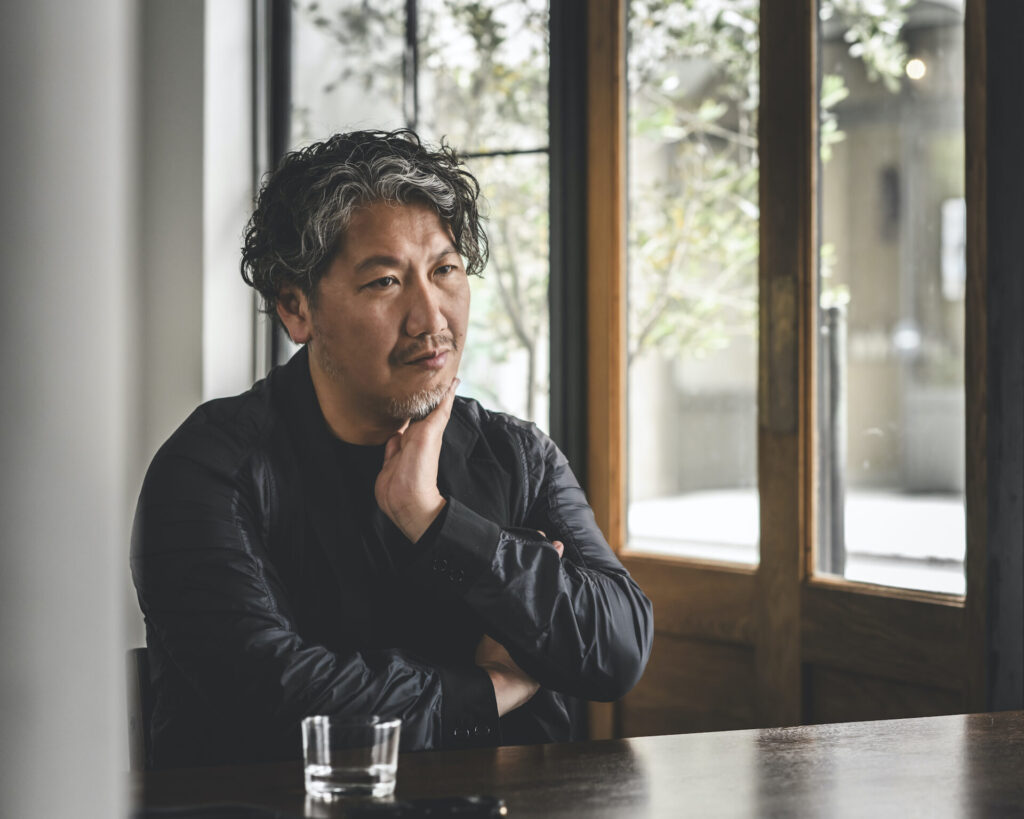
“Once you become curious about something, you should go and experience it firsthand; otherwise, you will never truly cultivate your sense of taste.” (Shigeta)
Shigeta: Since the COVID pandemic, the amount of time we spend in online meetings has increased dramatically. I often half-jokingly say, “If this is something that can be done online, couldn’t you just tell me telepathically?” I see real value in meeting in person but not in talking online. When I have several meetings in a day, I’m often left with nothing more than the vague sense that “I’ve done my work.”
Nagase: If your job doesn’t require you to talk to anyone face-to-face, it probably just means your work is too simple. (laughs)
Shigeta: Some people say they want to save time by cutting down on travel time, but I’m the opposite. I need about an hour of travel time whenever I meet someone. I use that time to organize my thoughts after the meeting, and I make it a rule to drive myself for that reason. If I take a taxi, I can’t help but open Instagram. So, in a sense, driving ties my hands and helps me to focus.
Nagase: That’s a good way of thinking.
Shigeta: People often say that the pace of business keeps accelerating. Many new tools to support business are being introduced one after another. However, I’ve recently come to believe that people will eventually recognize their limitations.
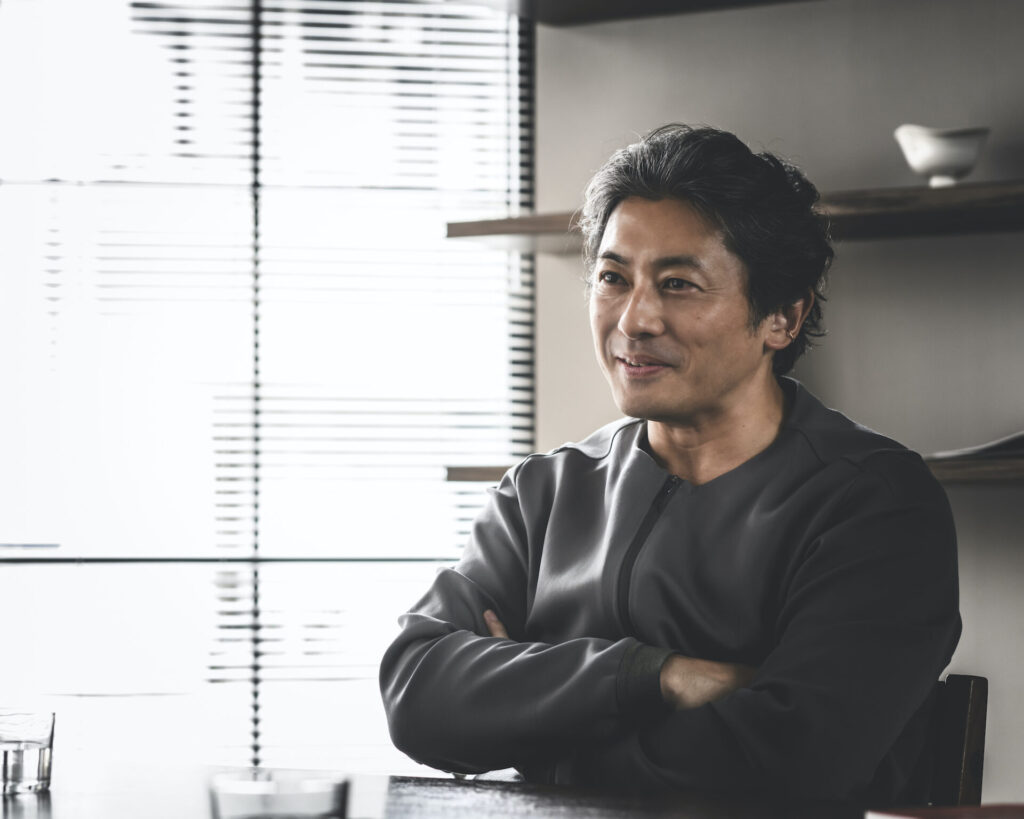
Nagase: The reason we’re not having this dialogue online is because meeting face-to-face gives you a much richer experience. Today was my first time using the station I got off at. I played Pokemon Go near the station and discovered a delicious ramen shop. By making an effort to come all the way here and spending both time and money, I was able to encounter something new and valuable. But digital technology and digital tools today tend to eliminate those valuable moments when you “go out of your way” to do something.
Shigeta: I went to a restaurant with my staff the other day, but it’s difficult to make a reservation there. On their website, it says, “We can’t answer phone calls during business hours because the restaurant is run by just the two of us.” At first, we assumed the owners might be a bit arrogant, but upon visiting the restaurant, we found them to be very respectful.
When we finished paying the bill, they came out to the entrance to see us off. Seeing that, I thought, “No wonder they have no time to answer phone calls.” For them, they can’t provide excellent service if they constantly answer phone calls, so they have to choose what to prioritize. I think it’s a matter of choosing quality.
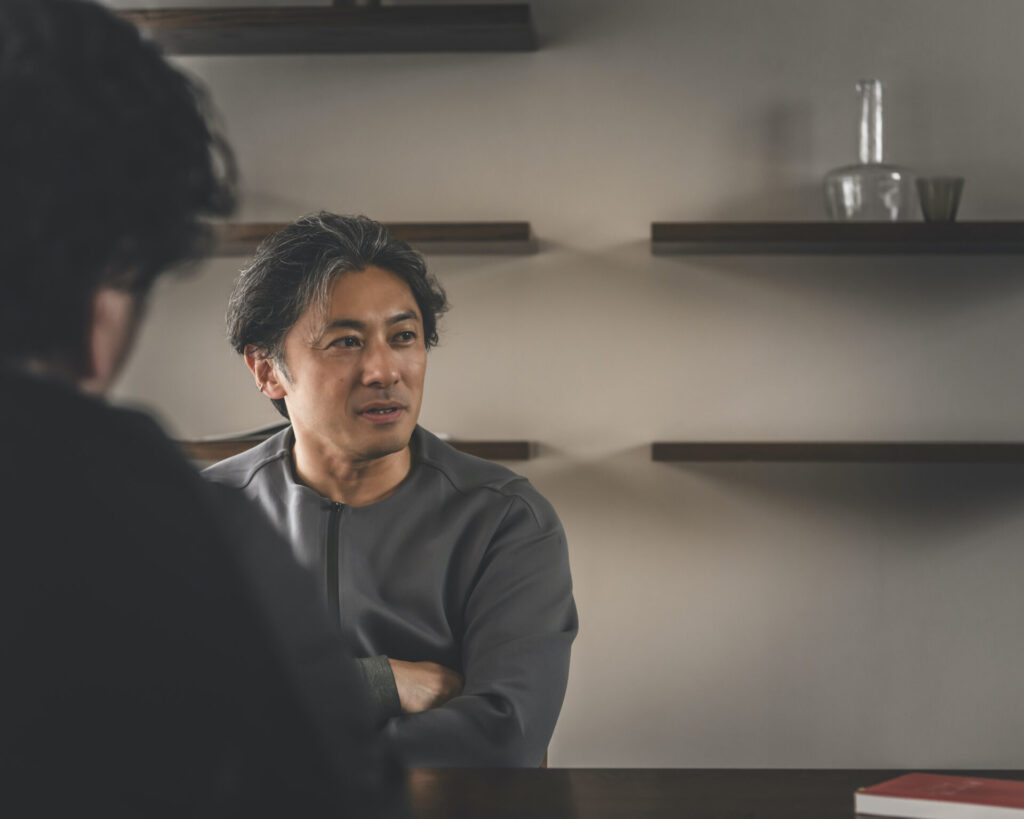
Nagase: There will be more and more choices in the future, and having good taste will be vital for making high-quality decisions. Even if two people make the same choices, the outcomes can differ depending on their sense of taste. Also, sharing the same taste will be a trigger for empathy.
——Everybody needs to refine their taste.
Nagase: Is that something you refine? I think it’s something you cultivate. What do you think, Mr. Shigeta?
Shigeta: I believe the essence of taste lies in curiosity. No one is born with good taste. It is gradually cultivated by experiencing and observing many things with curiosity, and by repeatedly choosing what matters to you and what doesn’t. What concerns me is that many people these days seem to have a low level of curiosity. Even when something interests them, they don’t take action. In my case, whenever I find someone interesting, I always try to meet them. When I read a book that resonates with me, I send the author a direct message on Facebook, saying I’d like to meet them. Once you become curious about something, you should go and experience it firsthand; otherwise, you will never truly cultivate your sense of taste.

(to be continued in the second half)
Profile
-
Tsuguhide Nagase
Nagase was born in Kyoto in 1976. After graduating from the Department of Cross-Cultural Studies at Chuo University’s Faculty of Policy Studies, he joined KDD (later renamed KDDI) in 2000. He later worked for several companies, including J. Walter Thompson and Unilever, before joining Facebook Japan, where he contributed to the launch and growth of its monetization business. In 2014, he became the first head of Instagram Japan. He went on to hold various leadership roles, including Chief Digital Officer (CDO) at L’Oréal Japan and CDO and Executive Board Member at LDH Japan. Since 2019, he has been working concurrently as an advisor to multiple companies.
Publications
Marketing Big Bang (CCC Media House, 2020)
Sharpen your claws, without hiding them (KOTONOHA Publishing, 2021)
Words for You Today (Kazahino Bunko, 2021) -
Masakazu Shigeta
After working as an engineer in the music industry, Shigeta began his career as a cosmetics developer in 2001. From 2004, he worked on various cosmetics brands in the healthcare business of Nitto Denka Kogyo Co., Ltd., a metal surface treatment company founded by his great-grandfather. In 2017, he founded “OSAJI,” a skincare lifestyle brand, and became its brand director. In 2021, as a new store of “OSAJI,” he produced “kako,” a specialized shop for home fragrances and perfume in Kuramae, Tokyo. In the following year, he opened a combined shop of “OSAJI,” “kako,” and a restaurant, “enso,” in Kamakura, Kanagawa. In 2023, utilizing the technical skill of Nitto Denka Kogyo, he launched a pottery brand, “HEGE,” and in October of the same year, he became CEO of OSAJI Inc. He also has published books on beauty and held cooking classes and events focusing on food, which is the origin of beauty. He released a collaborative album with F.I.B JOURNAL called “Gensho hyphenated” in November 2024 and has been expanding the range of activities.
Publications
Taberu Biyou (Eating for Beauty) (SHUFU TO SEIKATSU SHA, 2024)
42-Sai ni Nattara Yameru Biyou, Hajimeru Biyou (Beauty cares to quit and start when you turn 42) (Takarajimasha, 2022)
Information
Publications
Marketing Big Bang
This is the first book authored by Mr. Nagase during the COVID pandemic. In this book, he states that the origin of marketing is the “energy” that moves people’s hearts. Drawing on his experience as head of Japan business at Instagram and as Chief Digital Officer at L’Oréal Japan and LDH Japan, he emphasizes that no matter how the business environment changes, what truly matters in marketing is visiting the site in person with high energy, listening directly to customers, and engaging in face-to-face communication. The book includes Mr. Nagase’s contact information at the end, allowing readers to share their opinions with him directly.
Words for You Today
This book offers 108 messages by Mr. Nagase to support working people. Written in a poetic style, the messages feel as if he is speaking directly to the reader, offering emotional support not only to business people but also to a wide range of people, encouraging them to take action. Readers can flip through the pages and begin with any message that resonates with them. Each message is accompanied by memorable illustrations drawn by makeup artist TAKAKO.
-
Photographs:Eisuke Komatsubara
-
Text:Masahiro Kamijo
NEWS LETTER
理想論 最新記事の
更新情報をお届けします
ご登録はこちら
ご登録はこちら
メールアドレス
ご登録ありがとうございます。
ご登録確認メールをお送りいたします。
